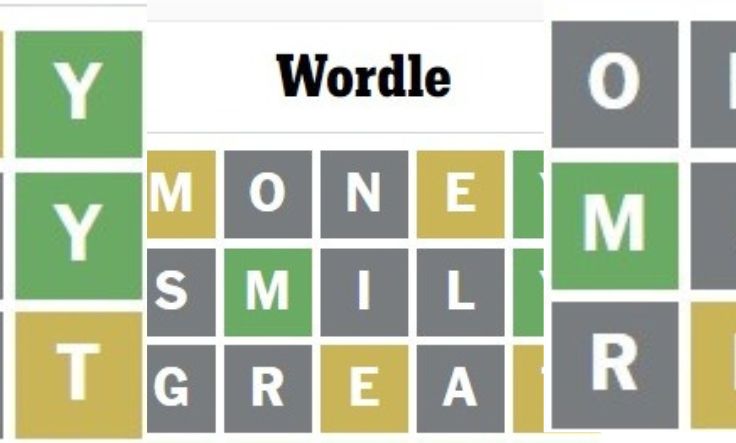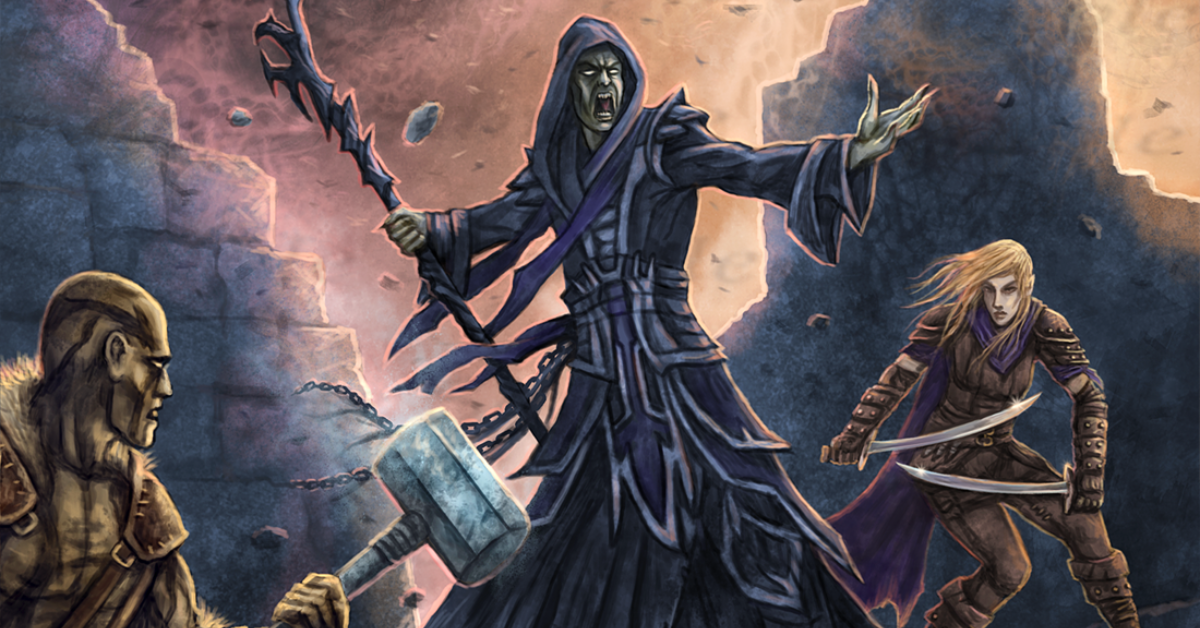In the realm of online word games, NYTimes Wordle stands out as a daily phenomenon, capturing the attention and enthusiasm of word enthusiasts around the world. Developed by Jonathan Feinberg and brought to The New York Times, Wordle has become a staple for those seeking a daily dose of linguistic challenge and mental stimulation. Let’s delve into the fascinating world of NYTimes Wordle, exploring its origins, popularity, strategies, and the daily excitement it generates among players.
The Birth of Wordle: From Concept to Digital Craze
Wordle originated as an online word puzzle created by Feinberg, a computer scientist. Its simplicity and engaging nature caught the eye of The New York Times, leading to its adoption as a daily feature. The game’s appeal lies in its accessibility, challenging players to guess a five-letter word within six attempts, with each guess providing feedback on correct letters and their positions.
Daily Rituals: The NYTimes Wordle Experience
For devoted players, NYTimes Wordle is more than just a game; it’s a daily ritual. The challenge of deciphering the secret word based on limited clues fuels a sense of achievement and intellectual satisfaction. With each correct guess, players inch closer to unraveling the puzzle, making it a rewarding and addictive experience.
The Social Aspect: Wordle’s Global Community
Wordle’s success is not just in its gameplay but also in fostering a global community of players. Social media platforms buzz with discussions, strategies, and shared triumphs, creating a communal experience around a seemingly solitary word puzzle. The shared joy of cracking the code adds an extra layer of enjoyment to the game.
Evolution of Wordle: From Web Game to App Sensation
What started as a web-based game has evolved into a sensation with the Wordle app. The convenience of having the puzzle at your fingertips, coupled with the ability to compete with friends, has propelled Wordle into the digital age, ensuring its relevance and popularity in an era dominated by mobile applications.
The Psychology of Wordle: A Cognitive Workout
Wordle is more than a game; it’s a cognitive workout. Players engage in deductive reasoning, pattern recognition, and vocabulary skills, making it an intellectual exercise wrapped in the guise of entertainment. The daily challenge serves as a mental warm-up, keeping the brain agile and language skills sharp.
Strategies for Success: Cracking the Wordle Code
While Wordle is inherently a game of words, certain strategies can increase your chances of success. Players often begin with vowels and common consonants, strategically choosing letters that are likely to appear in many words. The game’s feedback system provides valuable clues, guiding players toward the elusive five-letter word.
Wordle Variations: Exploring the Lexical Landscape
Beyond the traditional Wordle experience, variations and spin-offs have emerged. Some players enjoy themed versions, where the secret word aligns with a specific category or topic. These variations add an element of surprise and creativity, keeping the game fresh for those seeking new challenges.
NYTimes Wordle Community Challenges: Friendly Competitions
The communal spirit of Wordle extends to friendly competitions within online communities. Players challenge each other to solve the daily puzzle in record time or with the fewest guesses. These community challenges not only add a competitive edge but also foster camaraderie among enthusiasts.
Wordle in Education: A Learning Tool
Beyond its recreational appeal, Wordle has found a place in educational settings. Teachers use the game to enhance vocabulary, spelling, and critical thinking skills among students. The interactive nature of Wordle transforms learning into an engaging experience, illustrating the game’s versatility.
Wordle Controversies: Balancing Difficulty and Enjoyment
As with any popular game, Wordle has faced controversies related to its difficulty level. Striking the right balance between providing a challenging puzzle and ensuring player enjoyment is a delicate task. The evolving nature of Wordle prompts discussions on how to maintain its appeal without alienating participants.
Wordle and Linguistic Creativity: Unleashing Word Wizards
For some, Wordle is not just a game but a canvas for linguistic creativity. Players experiment with words, uncovering rare or unique terms to outsmart the puzzle. This playful aspect adds an extra layer of enjoyment for those who relish the exploration of language’s vast possibilities.
Wordle’s Cultural Impact: Beyond the Daily Puzzle
The cultural impact of Wordle extends beyond its role as a daily puzzle. It has inspired memes, artwork, and even references in mainstream media. The game’s influence on popular culture illustrates its ability to resonate with a diverse audience and integrate seamlessly into the broader cultural conversation.
NYTimes Wordle and Technological Accessibility: Reaching Diverse Audiences
One of Wordle’s strengths lies in its technological accessibility. The game’s availability on multiple platforms, including web browsers and mobile applications, ensures that it reaches a diverse audience. The democratization of Wordle contributes to its widespread popularity across age groups and demographics.
Wordle’s Resilience: Navigating Trends in Online Gaming
The online gaming landscape is dynamic, with trends rising and falling. Wordle’s resilience lies in its timeless appeal and adaptability to changing player preferences. Its ability to remain relevant in a fast-paced digital environment is a testament to the game’s enduring charm.
Wordle and Language Evolution: Reflecting Contemporary Vernacular
As players interact with Wordle daily, the game becomes a microcosm reflecting the contemporary vernacular. The words guessed, attempted, and celebrated in the game provide a snapshot of linguistic trends, showcasing the dynamic nature of language as it evolves over time.
The Influence of Wordle on Word Games: Setting a Standard
Wordle has set a standard for word games in the digital era. Its minimalist design, intuitive gameplay, and daily challenge format have become a blueprint for developers seeking to engage audiences with language-based puzzles. The influence of Wordle echoes in the design and mechanics of subsequent word games.
Wordle Analytics: Tracking Trends and Patterns
The data generated by Wordle players presents an intriguing landscape for analytics. Tracking trends in word choices, popular strategies, and the time taken to solve puzzles can provide insights into player behavior and preferences. This analytical approach adds a layer of sophistication to understanding the game’s dynamics.
Wordle and Mental Wellness: A Relaxing Pastime
In the hustle of daily life, Wordle serves as more than just a game—it’s a relaxing pastime. The mental engagement required to solve the puzzle offers a brief respite from stress, making it a favored activity for those seeking a mindful break during their day.
Wordle Accessibility Features: Inclusive Gaming Experience
The inclusivity of Wordle is further enhanced by its accessibility features. The game’s simple interface, clear design, and minimalistic approach ensure that players with varying abilities can enjoy the challenge. This commitment to inclusivity contributes to Wordle’s broad appeal.
Wordle’s Collaborations: Exploring New Frontiers
In the ever-expanding world of digital games, collaborations can elevate a game’s visibility. Wordle’s potential collaborations with other media or brands could open new frontiers, introducing the game to audiences who may not have encountered it otherwise.
Community Feedback: Shaping the Future of Wordle
The Wordle community’s feedback is a crucial element in shaping the game’s future. Player suggestions, preferences, and critiques contribute to the ongoing evolution of Wordle, ensuring that it remains a dynamic and responsive experience that resonates with its diverse player base.
Wordle’s Impact on Word Pronunciation: A Linguistic Adventure
For language enthusiasts, Wordle offers a unique linguistic adventure. Players often engage in discussions about word pronunciation, exploring the varied ways terms can be spoken. This playful exploration adds an auditory dimension to the game, enhancing the overall experience.
NYTimes Wordle Today FAQs: Answering the Curious Minds
Q: What is NYTimes Wordle, and how does it work?
A: NYTimes Wordle is a daily word puzzle game where players attempt to guess a five-letter word within six attempts. Each guess provides feedback on correct letters and their positions, guiding players toward the solution.
Q: Who developed NYTimes Wordle, and when did it become part of The New York Times?
A: NYTimes Wordle was developed by Jonathan Feinberg. It became part of The New York Times, where it gained widespread popularity as a daily word puzzle.
Q: Are there specific strategies for solving NYTimes Wordle?
A: Yes, players often begin with vowels and common consonants, strategically choosing letters likely to appear in many words. The game’s feedback system provides valuable clues for a successful guess.
Q: How has NYTimes Wordle impacted language education?
A: NYTimes Wordle has found a place in education, with teachers using the game to enhance vocabulary, spelling, and critical thinking skills among students. Its interactive nature makes learning engaging.
Q: Are there variations of NYTimes Wordle, and how do they differ?
A: Yes, variations and spin-offs of Wordle exist, including themed versions where the secret word aligns with a specific category or topic. These variations add creativity and diversity to the gameplay.
Q: What controversies has NYTimes Wordle faced regarding its difficulty level?
A: NYTimes Wordle has faced controversies related to its difficulty level, sparking discussions on how to balance providing a challenging puzzle without alienating players.
Q: How has NYTimes Wordle influenced popular culture?
A: NYTimes Wordle has inspired memes, artwork, and references in mainstream media, showcasing its cultural impact beyond being a daily word puzzle.
Q: Is NYTimes Wordle available as an app, and how has its digital presence evolved?
A: Yes, NYTimes Wordle is available as an app, contributing to its digital presence. Its evolution from a web-based game to a mobile application reflects its adaptability to changing player preferences.
Q: What role does the NYTimes Wordle community play in the overall experience?
A: The NYTimes Wordle community plays a significant role, fostering discussions, challenges, and a shared sense of achievement among players. The communal spirit adds an extra layer of enjoyment to the game.
Q: How does NYTimes Wordle contribute to mental wellness?
A: NYTimes Wordle serves as a relaxing pastime, offering a mental break from daily stress. The game’s engaging nature provides a mindful activity for those seeking a moment of relaxation.
Conclusion: NYTimes Wordle’s Enduring Legacy
In the realm of online word games, NYTimes Wordle stands as a testament to the enduring appeal of linguistic challenges and the power of simplicity. From its humble origins as a web-based puzzle to becoming a daily ritual for players worldwide, Wordle has evolved into a cultural phenomenon that transcends generational and geographical boundaries.
The game’s impact on language education, its resilience in a dynamic digital landscape, and the sense of community it fosters contribute to Wordle’s enduring legacy. As it continues to captivate minds and spark conversations, NYTimes Wordle remains a shining example of how a well-designed and accessible game can carve its place in the hearts and minds of a diverse and enthusiastic player base. The daily unraveling of the Wordle puzzle not only challenges intellects but also fosters a shared experience that unites players in the joy of words and the thrill of the linguistic quest.



